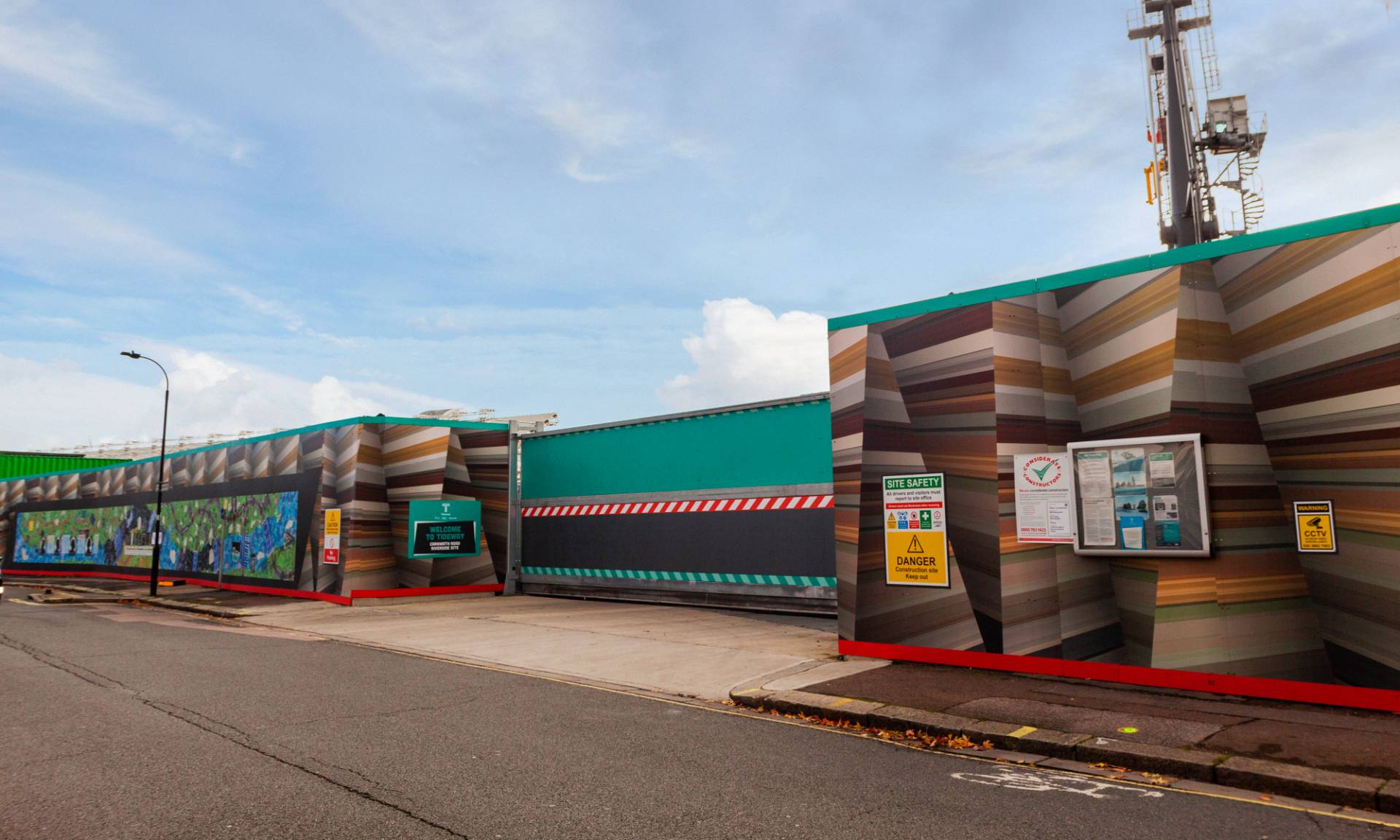Jacksons Fencing specified at Thames Tideway Carnwath Road Riverside site
Construction on the Thames Tideway, providing a sewage overflow solution for Central London, is well underway. The 25km-long tunnel will span from Acton to Stratford, up to 65m below ground. Such a large project requires significant machinery and labour, and, subsequently, robust security measures and access control to protect both workers and the public from the dangers posed by the ongoing works.
Tunnelling has started from three main drive sites, where tunnel boring machines (TBM) are making progress on connecting east and west London. One of these sites is Carnwath Road Riverside in Fulham. From here, a TBM named ‘Rachel’, after one of the founders and first president of the Women’s Engineering Society, has started a 7km route west to Acton Storm Banks.
During and after construction, it was important to ensure only authorised personnel gained entry as well as block the site from public view, for privacy and to reduce the visual impact on local residents. Security expert Jacksons Fencing was tasked with manufacturing and installing a bespoke cantilever sliding gate to help meet both these aims.
To meet the site’s requirements, Jacksons delivered a 3.6m high by 12m wide, single leaf, cantilever steel-frame gate with a galvanised finish. Weighing in at 8.5 tonnes, this is the largest and heaviest gate Jacksons Fencing has made to date.
The system is CE marked to meet the high safety standards and legislation surrounding automated gates. A Class 3 rating also means that it includes the necessary safety equipment for remote use, such as a flashing light, safety edges and photocells. These visual cues are especially important since the gate has been designed to make no noise during operation.
Due to limited space on site and to ensure smooth assembly, the gate was constructed at Jacksons’ Ashford headquarters and transported whole, rather than in parts. Located in West London, it was important to minimise the gate’s industrial aesthetic and impact on residents. Following installation, the client clad the gate with solid coloured plastic sheeting, selected to match the Thames Tideway project branding.
With bespoke, larger than average dimensions, designing the gate and automated system was not without its challenges. Its size and location meant that it would be required to cope with extreme wind loading. From an engineering perspective, this was especially difficult owing to the cantilever style, requiring complex calculations by the Jacksons design team. Additionally, a 4 kilowatt hydraulic motor was installed to operate the exceptionally heavy gate, two to three times bigger than those used for conventional size gates.
Jacksons Fencing managing director Peter Jackson comments, “Automated gates play a crucial role in safety on construction and industrial sites. Lax standards have, in the past, led to tragic and lethal consequences. Recognising this, we ensure our gates are manufactured, installed and automated to the highest and most current safety standards.
